|

|
Why Managers Matter:
Without well-defined roles and responsibilities, it is hard to coordinate people and tasks quickly and smoothly.
|
016 |
|

|
Why Managers Matter:
Paradoxically, management and hierarchy can help companies become agile and adaptive.
|
016 |
|
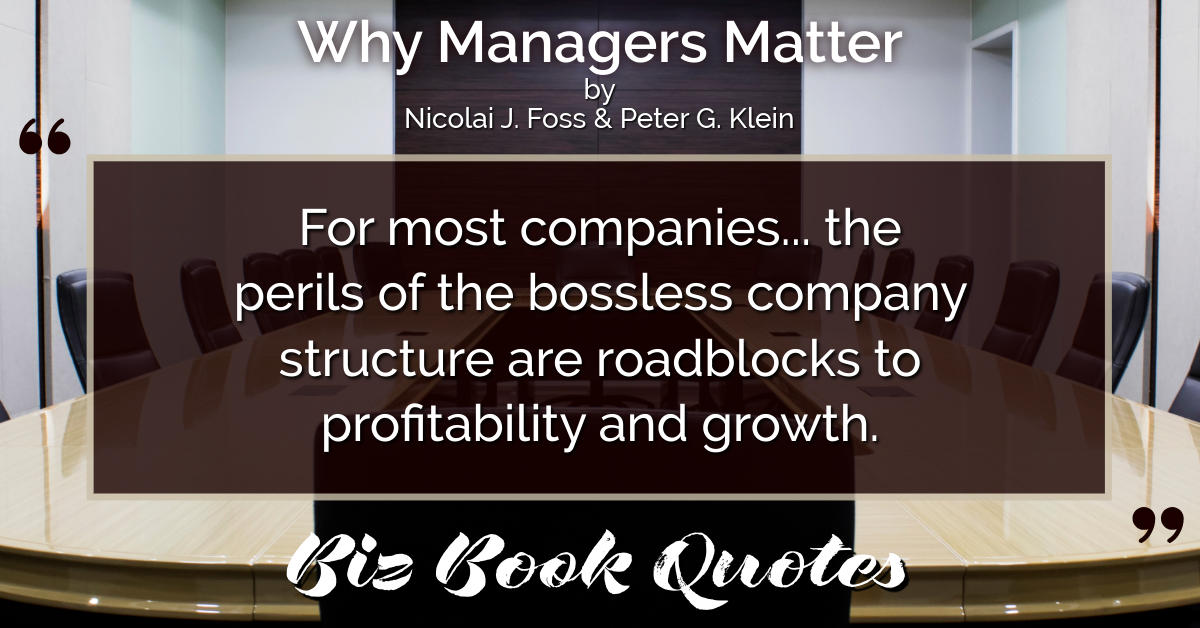
|
Why Managers Matter:
For most companies… the perils of the bossless company structure are roadblocks to profitability and growth.
|
016 |
|
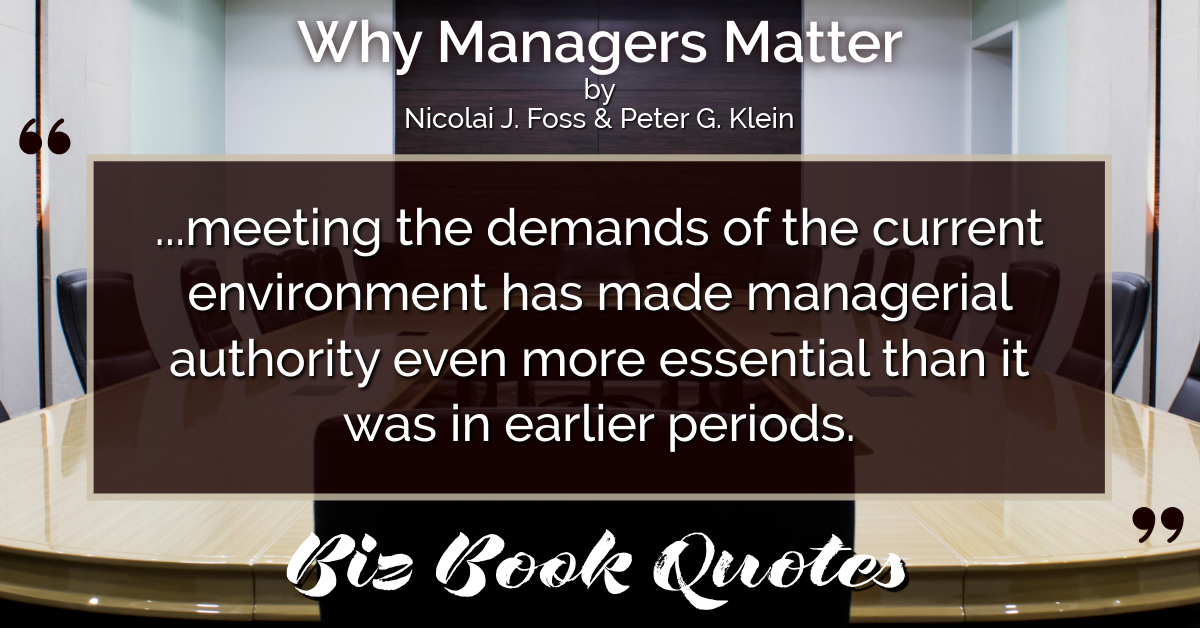
|
Why Managers Matter:
…meeting the demands of the current environment has made managerial authority even more essential than it was in earlier periods.
|
016 |
|
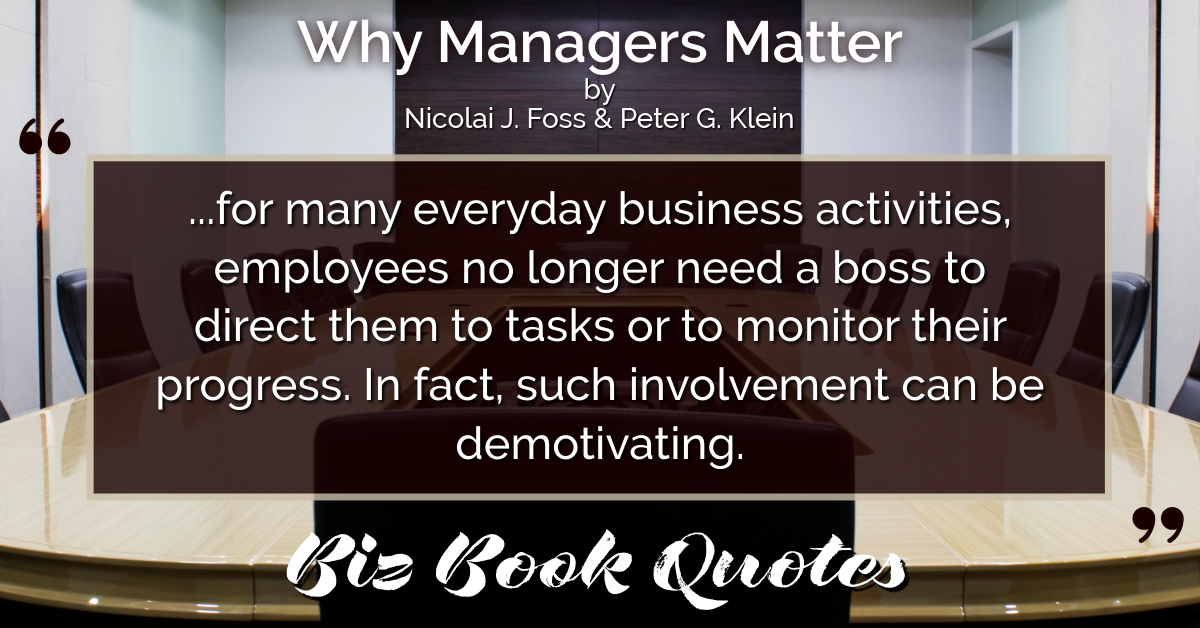
|
Why Managers Matter:
…for many everyday business activities, employees no longer need a boss to direct them to tasks or to monitor their progress. In fact, such involvement can be demotivating.
|
019 |
|
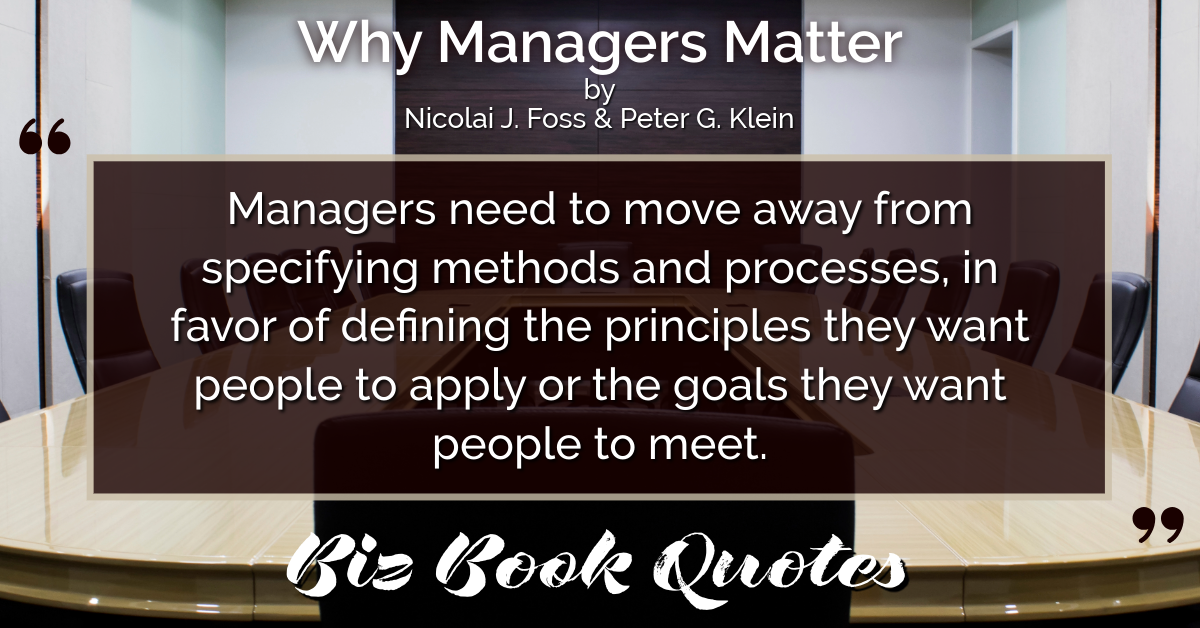
|
Why Managers Matter:
Managers need to move away from specifying methods and processes, in favor of defining the principles they want people to apply or the goals they want people to meet.
|
019 |
|
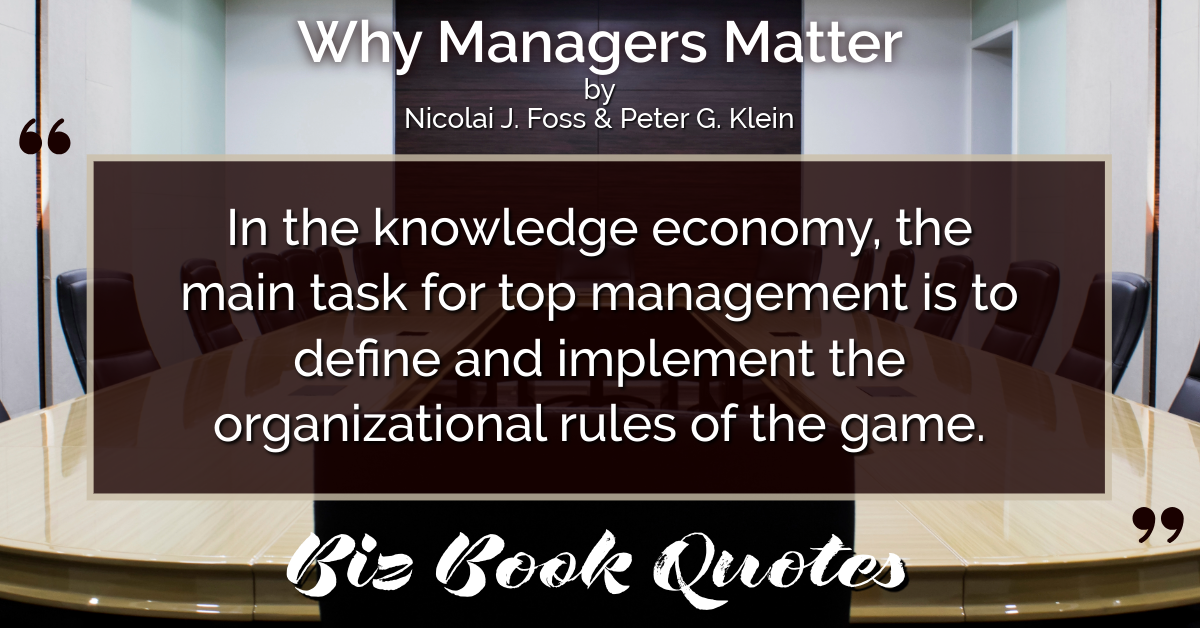
|
Why Managers Matter:
In the knowledge economy, the main task for top management is to define and implement the organizational rules of the game.
|
020 |
|

|
Why Managers Matter:
Most of our relationships are hierarchical to some degree.
|
020 |
|
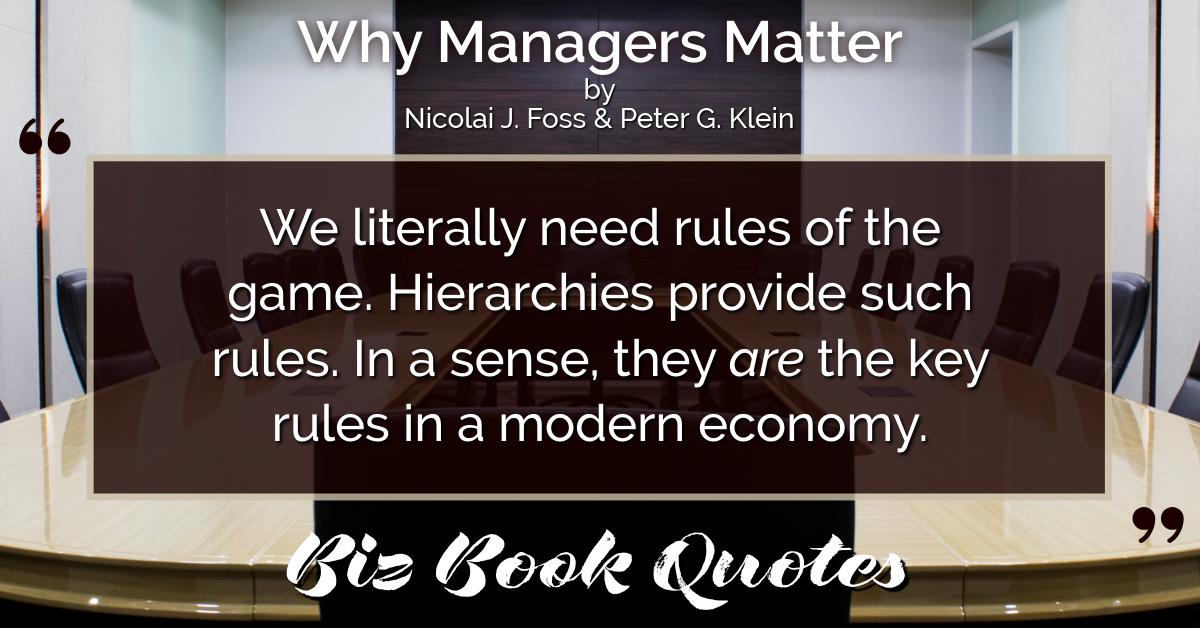
|
Why Managers Matter:
We literally need rules of the game. Hierarchies provide such rules. In a sense, they are the key rules in a modern economy.
|
021 |
|
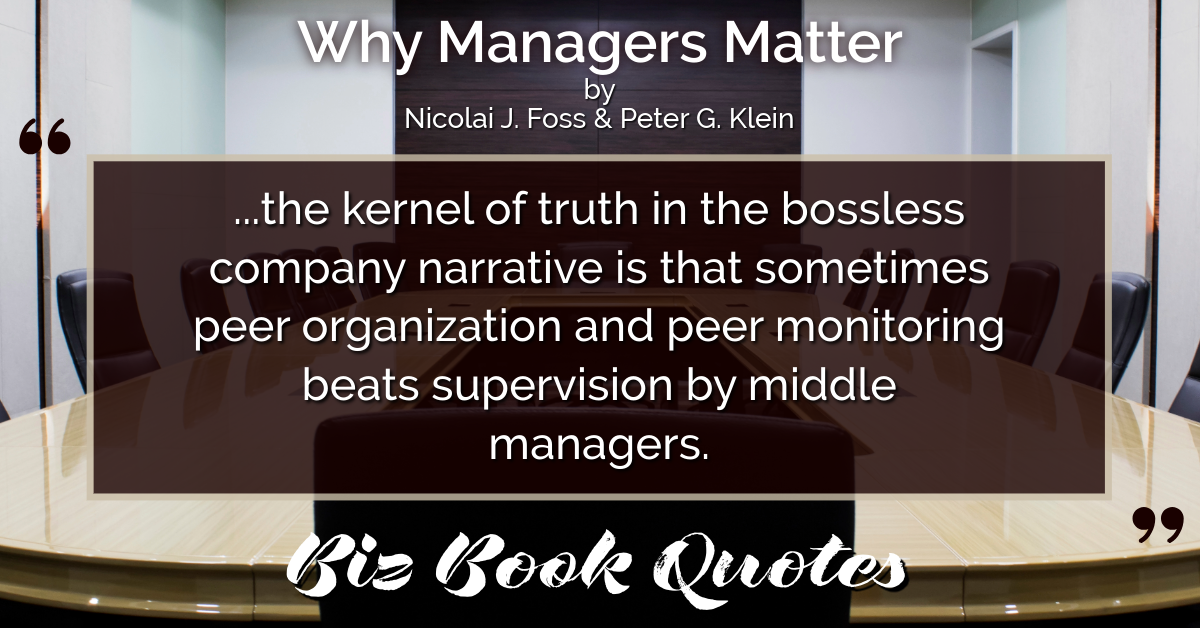
|
Why Managers Matter:
…the kernel of truth in the bossless company narrative is that sometimes peer organization and peer monitoring beats supervision by middle managers.
|
032 |











